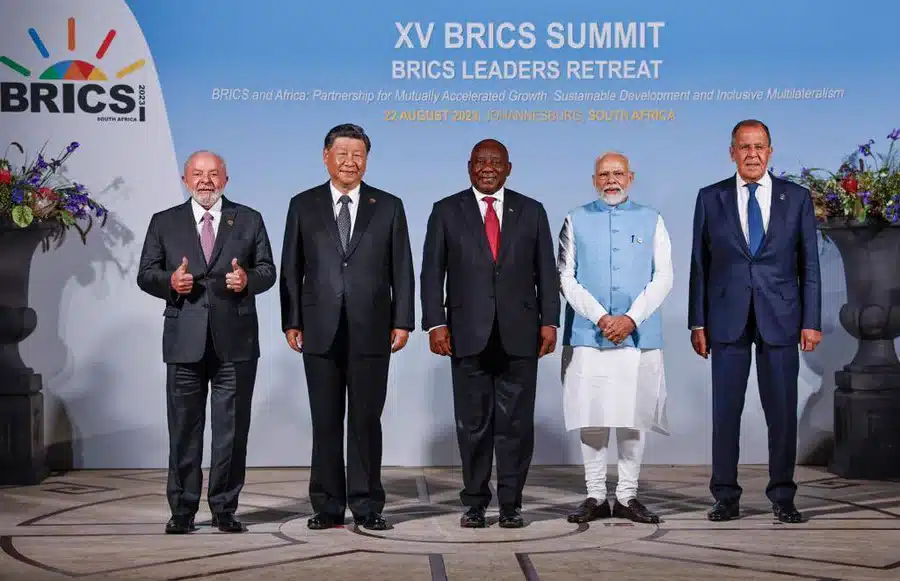BRICS announced the admittance of six new members.
This move was announced by South African President Cyril Ramaphosa at a summit in Johannesburg on Thursday.As the newly emerging international cross-border group, BRICS agreed to expand to add six new members, including Saudi Arabia, the United Arab Emirates, and Iran.
The other three new members are Argentina, Egypt, and Ethiopia. The expansion will take effect on January 1, 2024.
https://twitter.com/BRICSinfo/status/1694669263364059553The BRICS countries — Brazil, Russia, India, China, and South Africa — have been discussing expanding the bloc for several years.
The decision to admit new members was made by consensus, which means that all five countries agreed to the expansion.
The expansion of BRICS is a significant development. The bloc now represents a quarter of the global economy and more than three billion people.
The new members bring with them their strengths and weaknesses, which will likely impact the bloc's future direction.
Saudi Arabia is a major oil producer, while the UAE is a financial and trade hub. Iran is a regional power with significant economic and military potential. Argentina, Egypt, and Ethiopia are all developing countries with large populations.
The expansion of BRICS is likely to have a major impact on the global economy and geopolitics. The bloc will become more powerful and influential, and its decisions will have a greater impact on the world.
It remains to be seen how the new members will integrate into the bloc and how they will shape its future direction. However, the expansion of BRICS is a sign of the growing influence of emerging nations in the world.




















